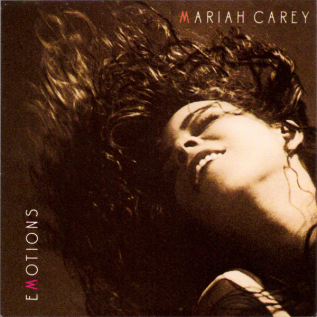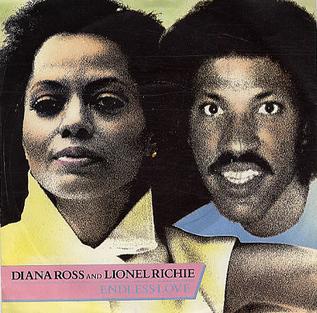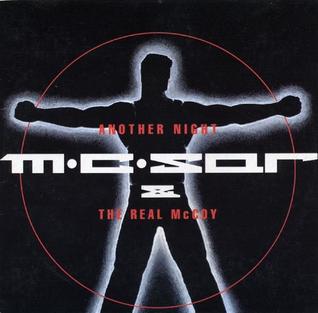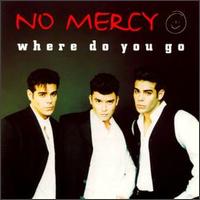Related Research Articles
The Billboard Hot 100 is the music industry standard record chart in the United States for songs, published weekly by Billboard magazine. Chart rankings are based on sales, online streaming, and radio airplay in the U.S.
The Billboard charts tabulate the relative weekly popularity of songs and albums in the United States and elsewhere. The results are published in Billboard magazine. Billboard biz, the online extension of the Billboard charts, provides additional weekly charts, as well as year-end charts. The two most important charts are the Billboard Hot 100 for songs and Billboard 200 for albums, and other charts may be dedicated to a specific genre such as R&B, country, or rock, or they may cover all genres. The charts can be ranked according to sales, streams, or airplay, and for main song charts such as the Hot 100 song chart, all three data are used to compile the charts. For the Billboard 200 album chart, streams and track sales are included in addition to album sales.

"I Will Survive" is a song by American singer Gloria Gaynor, released in October 1978 as the second single from her sixth album, Love Tracks (1978). It was written by Freddie Perren and Dino Fekaris. The song's lyrics describe the narrator's discovery of personal strength following an initially devastating breakup. The song is also frequently recalled as a symbol of female empowerment, as well as a disco staple.

"I'll Be There" is the first single released from Third Album by The Jackson 5. It was written by Berry Gordy, Hal Davis, Bob West, and Willie Hutch.
Cashbox, also known as Cash Box, is an American music industry trade magazine, originally published weekly from July 1942 to November 1996. Ten years after its dissolution, it was revived and continues as Cashbox Magazine, an online magazine with weekly charts and occasional special print issues. In addition to the music industry, the magazine covered the amusement arcade industry, including jukebox machines and arcade games.

"Can't Let Go" is a song recorded by American singer Mariah Carey for her second studio album, Emotions (1991). Columbia Records released it as the album's second single in November 1991. Featuring synthesizers and drum programming, "Can't Let Go" is a breakup song in the form of an R&B and pop slow jam. The lyrics, written by Carey, are about post-breakup sadness. She composed the music and produced the song with Walter Afanasieff, who had previously worked on her 1990 single "Love Takes Time". Carey's vocal range spans more than three octaves; her delivery is predominately breathy and in a low register, with whistle notes featured in the song's introduction and ending.

"Emotions" is a song recorded by American singer-songwriter Mariah Carey for her second studio album of the same name (1991). It was written and produced by Carey, Robert Clivillés, and David Cole of C+C Music Factory and released as the album's lead single on August 13, 1991 by Columbia Records. The song's lyrics has its protagonist going through a variety of emotions from high to low, up to the point where she declares, "You got me feeling emotions." Musically, it is a gospel and R&B song heavily influenced by 1970s disco music and showcases Carey's upper range and extensive use of the whistle register. Jeff Preiss directed the song's music video.

"Time After Time" is a 1983 song by American singer-songwriter Cyndi Lauper, co-written with Rob Hyman, who also provided backing vocals. It was the second single released from her debut studio album, She's So Unusual (1983). The track was produced by Rick Chertoff and released as a single in March 1984. The song became Lauper's first number 1 hit in the U.S. The song was written in the album's final stages, after "Girls Just Wanna Have Fun", "She Bop" and "All Through the Night" had been written or recorded. The writing began with the title, which Lauper had seen in TV Guide magazine, referring to the science fiction film Time After Time (1979).

"All by Myself" is a song by American singer-songwriter Eric Carmen, released by Arista in December 1975 as the first single from Carmen's debut album, Eric Carmen (1975). The verse is based on the second movement of Sergei Rachmaninoff's 1900–1901 Piano Concerto No. 2 in C minor, Opus 18. The chorus was taken from the song "Let's Pretend", which Carmen wrote and recorded with the Raspberries in 1972. The slide guitar solo was performed by studio guitarist Hugh McCracken.

"Endless Love" is a song written by Lionel Richie and originally recorded as a duet between Richie and singer/actress Diana Ross. In this ballad, the singers declare their "endless love" for one another. It was covered by Luther Vandross with R&B-pop singer Mariah Carey, and also by country music singer Shania Twain. Richie's friend Kenny Rogers also recorded the song. Billboard has named the original version as the greatest song duet of all time.

"Angel of the Morning" is a popular song written by Chip Taylor, originally recorded by Evie Sands but which first charted with a version by Merrilee Rush. The song has been covered by many artists including Chrissie Hynde, Dusty Springfield, P. P. Arnold, Connie Eaton, Mary Mason, Guys 'n' Dolls, Melba Montgomery, Olivia Newton-John and most recognizably by Juice Newton.

Hot Country Songs is a chart published weekly by Billboard magazine in the United States.

"Another Night" is a song by German Eurodance and pop music project Real McCoy. The single is featured on their hit album Another Night (1995), which was the American release of the project's second album, Space Invaders. The song was written and produced in Germany by Juergen Wind and Frank Hassas (Quickmix) in 1993 under the producer team name Freshline. It was released in Europe on 12 July 1993 by Hansa Records and two music videos were produced, directed by Nigel Dick and Angel Garcia.

"If It Makes You Happy" is a song by American singer-songwriter Sheryl Crow, released as the lead single from her 1996 eponymous album in September 1996. The song peaked at number 10 on the US Billboard Hot 100, becoming Crow's final top-10 solo hit in the United States, and at number nine on the UK Singles Chart. It also reached number one in Canada and won Best Female Rock Vocal Performance at the 1997 Grammy Awards. In 2003, Q Magazine ranked "If It Makes You Happy" at number 663 in their list of the "1001 Best Songs Ever".

"Easy Lover" is a song performed by Philip Bailey of the band Earth, Wind & Fire and Phil Collins of the band Genesis, jointly written and composed by Bailey, Collins, and Nathan East. The song appears on Bailey's solo album, Chinese Wall. Collins has performed the song in his live concerts, and it appears on both his 1990 album, Serious Hits... Live!, and his 1998 compilation album, ...Hits. It is Bailey's only US Top 40 hit as a solo artist.

"Where Do You Go" is a song written by Peter Bischof and Frank Farian. It was first recorded in 1995 by German Eurodance band La Bouche as an album-only track from their debut album, Sweet Dreams (1995). A cover version of the song was then recorded by German pop trio No Mercy, taken from their debut album, My Promise (1996). On 13 May 1996, it was released as their first single and became a worldwide hit entering the top five in Australia, Austria, Belgium, France, Germany, Hungary, Lithuania, Switzerland, the United Kingdom, and the United States.

"Fly Like an Eagle" is a song written by American musician Steve Miller for the album of the same name. The song was released in the United Kingdom in August 1976 and in the United States in December 1976. It went to number two on the US Billboard Hot 100 for the week of March 12, 1977. The single edit can be found on Greatest Hits (1974–1978). It is often played in tandem with "Space Intro". On the album, the song segues into "Wild Mountain Honey".

"You Light Up My Life" is a ballad written by Joseph Brooks, and originally recorded by Kasey Cisyk for the soundtrack album to the 1977 film of the same title. The song was lip synced in the film by its lead actress, Didi Conn. The best-known cover version of the song is a cover by Debby Boone, the daughter of singer Pat Boone. It held the No. 1 position on the Billboard Hot 100 chart for ten consecutive weeks in 1977 and topped Record World magazine's Top 100 Singles Chart for a record 13 weeks.

"You Were Meant for Me" is a song by the American singer-songwriter Jewel, released on her first album, Pieces of You (1995). It was written by Jewel and Steve Poltz. It describes a failed relationship and the narrator's inadequate attempts at moving on with her life.

The singles discography of Elvis Presley began in 1954 with the release of his first commercial single, "That's All Right". Following his regional success with Sun Records, Presley was signed to RCA Victor on November 20, 1955. Presley's first single with RCA, "Heartbreak Hotel", was a worldwide hit, reaching the No. 1 position in four countries and the top 10 in many other countries. Other hit singles from the 1950s include "Don't Be Cruel", "Hound Dog", "Love Me Tender", "Too Much", "All Shook Up", "(Let Me Be Your) Teddy Bear", "Jailhouse Rock", "Don't", "Hard Headed Woman" and "A Big Hunk o' Love". On March 24, 1958, Presley entered the United States Army at Memphis, Tennessee, and was stationed in Germany. He left active duty on March 5, 1960.
References
- ↑ "About". Cash Box . Retrieved October 24, 2022.
- ↑ "Cash Box's Top 100 Singles 1958-1996". davesmusicdatabase.blogspot.com. Retrieved October 24, 2022.
- ↑ "Unique #1 Singles Between Cashbox & Billboard". top40weekly.com. Retrieved October 24, 2022.
- ↑ "A 'Box' of Different Number Ones". adampwhite.com. Retrieved October 24, 2022.